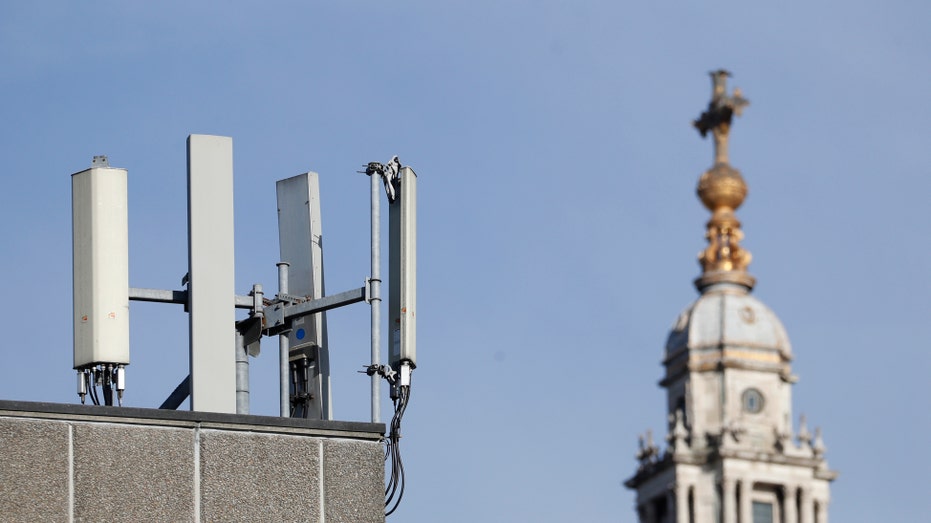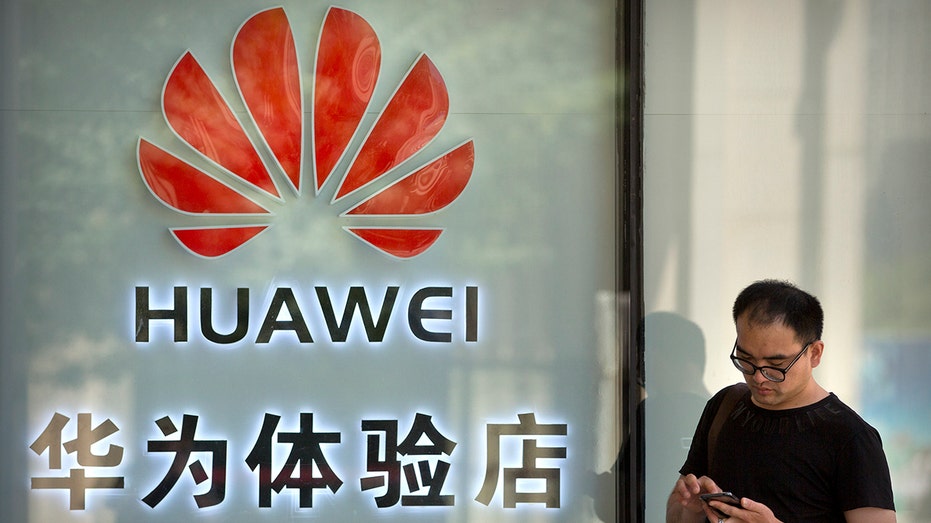Senate Intel members resist Biden DNI nominee over previous work for Chinese tech giant Huawei
The nominee said during a May hearing that he did 'less than 10 hours of work' answering questions for Huawei
Huawei equipment exports pose danger due to 5G, facial recognition technology: Wilbur Ross
Wilbur Ross on entity list, Huawei
Three GOP members of the Senate Intelligence Committee are resisting President Biden's general counsel nominee for the Office of the Director of National Intelligence (DNI) over his previous work for Chinese tech giant Huawei.
Sens. Ben Sasse, R-Neb.; Committee Vice Chairman Marco Rubio, R-Fla.; and Tom Cotton, R-Ark., voted against Biden's nomination of Christopher Fonzone, an attorney at Sidley’s Privacy and Cybersecurity group who previously served at legal counsel for the National Security Council under the Obama administration.
"You can't work for Huawei and then work for the Director of National Intelligence," Sasse said in a Wednesday statement. "After Mr. Fonzone left President Obama's National Security Council, he did legal work for Huawei. He knew exactly who Huawei is and he knew that he didn't have to take their money."
He added that Fonzone told the Intel Committee that "he had declined to work on certain cases for ethical reasons -- but he didn't decline Huawei."

Attendees walk past a display for 5G services from Chinese technology firm Huawei at the PT Expo in Beijing. (AP Photo/Mark Schiefelbein, File)
Sasse added that he is "not sure how on earth it's ethical to work for a company that's a key player in the Chinese Communist Party's genocide of the Uyghurs."
"Mr. Fonzone has impressive national security experience and that is exactly what makes his extremely poor [judgment] so concerning," the Nebraska Republican said.
SEN. BEN SASSE PRESSES ODNI NOMINEE OVER HIS WORK FOR HUAWEI
Rubio said that while "Fonzone’s work on behalf of Huawei and China’s Ministry of Commerce may have been technical in nature," it "raises serious questions about his [judgment] and decision making, especially considering his previous national security roles in government."
In a series of answers to pre-hearing questions before a May 18 Senate Intel hearing, Fonzone said Huawei "asked for help in answering general questions from the client about how U.S. administrative law works …including the mechanics of the when and how judicial review might occur" in 2018.
"I did less than ten hours of work on the questions and provided my analysis to colleagues at the firm, and have received no follow up since," the DNI general counsel nominee wrote.
GET FOX BUSINESS ON THE GO BY CLICKING HERE
Fonzone said during the hearing that if he were confirmed, his work would be "driven by what the intelligence community’s views are on Huawei."
The Federal Communications Commission (FCC) in March designated Huawei — which makes phones, chips and fifth-generation (5G) telecommunications equipment — and four other Chinese telecom companies as national security threats.

Mobile network phone masts are visible in front of St Paul's Cathedral in the City of London, Tuesday, Jan. 28, 2020. (AP Photo/Alastair Grant)
"This list is a big step toward restoring trust in our communications networks," FCC Acting Chairwoman Jessica Rosenworcel said in a March 12 statement. "Americans are relying on our networks more than ever to work, go to school, or access healthcare, and we need to trust that these communications are safe and secure."
U.S. officials have been pushing for American-made telecom equipment over the last several years as Huawei grew into an increasingly dominant competitor.
CHINA'S HUAWEI SAYS SALES DOWN 16.5% AMID US SANCTIONS
The Trump administration sanctioned the company by limiting access to U.S. technology used in Huawei chips, banning federal agencies from doing business with the company and barring U.S. companies from using Huawei equipment over concerns that the Chinese Communist Party (CCP) could access the company's technology for spying purposes.
As far back as 2012, the House Intelligence Committee warned that Huawei could be a national security threat because its telecommunications equipment, when bought by U.S. companies, could be used by the Chinese government to spy on American citizens.
HUAWEI FILES US LAWSUIT DISPUTING THAT IT IS A SECURITY THREAT
More recent reports have linked Huawei and other tech companies to forced Uyghur labor, and former Secretary of State Mike Pompeo announced sanctions against Huawei and other Chinese tech companies in July for providing "material support" such as surveillance equipment "to regimes engaging in human rights violations and abuses globally."

A man uses his smartphone outside of a shop selling Huawei products at a shopping mall in Beijing. (AP Photo/Mark Schiefelbein, File)
Former FCC Chairman Ajit Pai said in July that U.S. wireless providers take on risks when they do business with a Chinese company like Huawei. Pai told Fox Business at the Time that the FCC found Huawei and another Chinese tech giant, ZTE, " had ties to the Chinese Communist Party, had ties to China’s military apparatus, the People’s Liberation Army."
He went onto explain that in accordance with a 2017 Chinese national security law, if Chinese government authorities request information from Huawei, the company "must comply" with the request, and "they are prohibited from disclosing the fact of that request to any of their customers."
CLICK HERE TO READ MORE ON FOX BUSINESS
Former Director of National Intelligence John Ratcliffe published a December op-ed in the Wall Street Journal saying China's "intelligence services use their access to tech firms such as Huawei to enable malicious activities, including the introduction of vulnerabilities into software and equipment."
"Huawei and other Chinese firms deny this, but China’s efforts to dominate 5G telecommunications will only increase Beijing’s opportunities to collect intelligence, disrupt communications and threaten user privacy world-wide," he said. "I have personally told U.S. allies that using such Chinese-owned technology will severely limit America’s ability to share vital intelligence with them."
Fox Business' Paul Best contributed to this report.





















